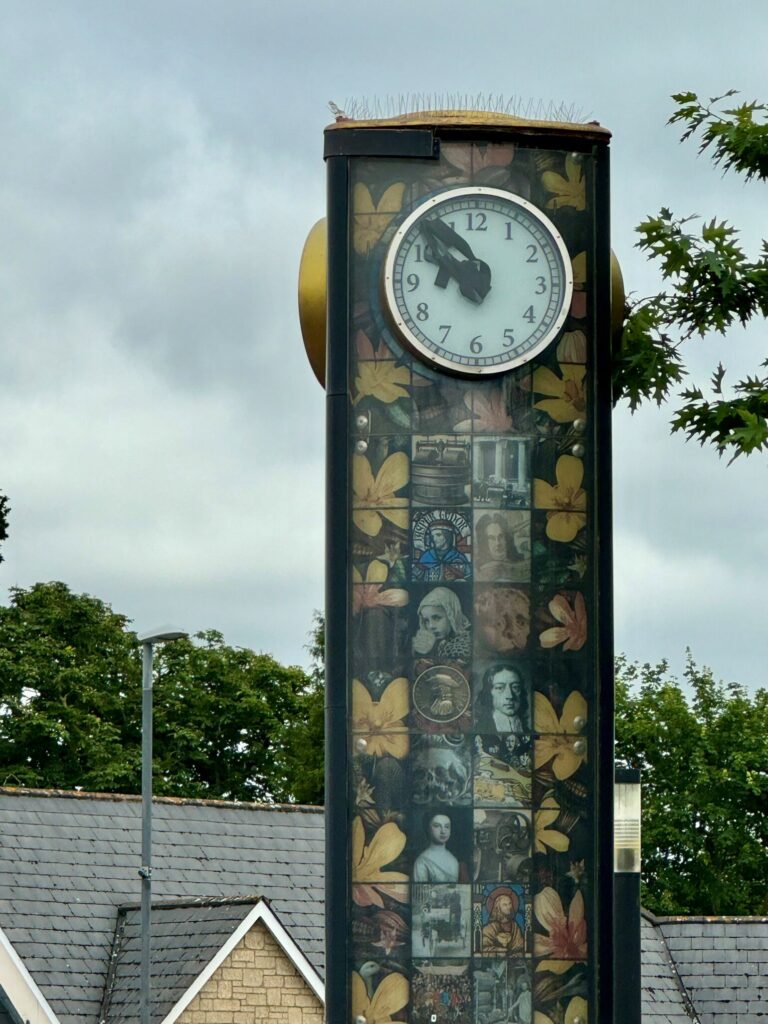Been a long time since I have posted… Gayle and I have just been enjoying travelling through Spain, covering some 3000kms / 1800miles, from the South West (Murcia) to the North East (Galicia). Always good to travel, reflect, talk – occasionally listen! – make plans knowing how plans get adjusted ever so easily. What a time to be alive… will the unravelling come too quickly, or will we (big ‘we’: humanity) be able to establish some good things to hold space for a better future? Of course all of those issues we have sorted while travelling! Or not.
Back to this post. A number of readers of these posts might have known Johnny Barr (passed away 2001). I loved my interaction with him and remember many of the stories and throw away lines, one of which was ‘if there is a gap between what is public and what is private God will make what is private public’. The biggest compliment that Sue ever gave in public was when I was brought on to a leadership team and after the prayer she simply said ‘I want you to know that what he is in public is what he is in private’. Of course it could have meant, he’s a jerk in public and that is exactly how he is at home too. With Jesus there was no gap and if someone ‘saw’ him then they saw the Father. With the rest of us we struggle to close the gap and in spite of Sue’s comment I am too aware of the temptation to appear better than I am.
Language: I have been praying for you can mean ‘every day with strong intercession I have been holding in for you…’ and certainly we read of that kind of prayer in Paul’s letters. It could mean ‘Over this past month I have thought of you and your situation and threw up a quick ‘God come and help so and so…’ Language leaves an impression, and I am deeply challenged by the instruction in Ephesians that we are not to speak a falsehood. Takes us beyond not lying, to doing what we can so that we do not leave an impression that is not transparent. OUCH. Why the increased requirement from Old Testament to New? Always, always to do with people – not to do with right and wrong. It is centred in on being known and knowing as God is found in the place between us all… if we gather in Jesus’ name (not a religious formula but a heart submission) then in the space between us all Jesus will be present.
Religion in all its forms requires that we leave impressions of great devotion and spirituality, and as Jesus said of the Pharisees that they loaded on to disciples weights they cannot bear. ‘Do this, do that…’, weights, requirements that they did not comply with themselves.
If you touch the core of my being (I think) you will touch my desire for the transformation of this world… if you come live with me you will see that I drift along. Maybe my ‘drifting’ is the core of my being?
We are who we are, and we are a work in progress. For those who have a public profile there is a gap between what is private and public… if the gap is at a level that is too large there will come a day of disclosure… if the gap is not so large and we cultivate honesty so that the gap is being closed I think that we will be ‘OK’.
Judas, the disciple that we often come closest to being like, is the prime example of someone with loads of opportunities through his proximity to Jesus to close the gap, but chose instead to hide the personal issues. We all betray Jesus, the betrayer is in us all, even those so close to Jesus.
Jesus was in the image of the invisible God… to see Jesus was to see the invisible One.
We are being changed from one degree of glory to another, we are being moulded into the image of Jesus. To see me is to see a work in progress, and on a good day to get a hazy glimpse of Jesus. Evangelism does not require me to be a work in progress, and allows me to see others as objects to bring to salvation! Witnessing requires that I am visible and in that visibility what / Who is invisible becomes a little more visible. Paul (or a Pauline disciple) when writing to Timothy about qualifications for an overseer said that such a person has to ‘be well thought of by outsiders’ (1 Tim. 3:7). Quite an interview for a job! Go ask the neighbours, as well as go ask other family members, see if they recommend the person.
No pressure here but… my neighbours, what / Who do they see? While we have been away – actually the reason why we have been away – is that neighbours asked if friends of theirs could use our apartment. So we left Bible verses on all the walls, left DVD of some powerful preachers as it was such an opportunity to evangelise… or we opened our home, agreed a price that went some way to covering our own travels and let the family stay here (whom we have never met) and use whatever they needed within the home. (You can work out which of the two former approaches we took.) I hope they saw something.
Everyday, and for each of us it will be different, we have opportunities for the gap to be closed, or for the gap to become public. ‘They speak of a self-giving God but we feel shut out’. That is how what we are in private is so often made public.


